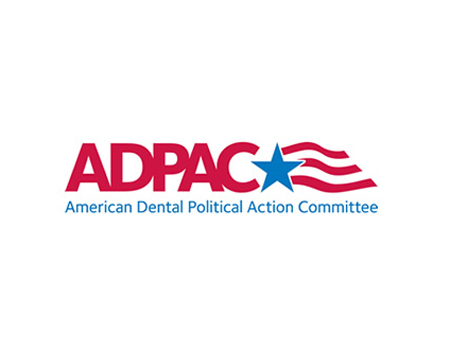 When you hear the word "law" what first comes to mind? A statue of justice blind and holding scales? That time you went to court to serve on a jury? Marathoning Law and Order SVU with your favorite crime busting cop team? Have you ever thought about how law might affect dentistry? On November 5th Colorado ASDA learned just how the law and dentistry intersect and what we need to be aware of as dentists and dental students moving forward.
When you hear the word "law" what first comes to mind? A statue of justice blind and holding scales? That time you went to court to serve on a jury? Marathoning Law and Order SVU with your favorite crime busting cop team? Have you ever thought about how law might affect dentistry? On November 5th Colorado ASDA learned just how the law and dentistry intersect and what we need to be aware of as dentists and dental students moving forward.
Troy Rackman Esq. (that means he's a lawyer for all you lay-people) visited Colorado ASDA to give a presentation about Dental law and new bills and laws recently passed on the state and local levels that impact dentists.
Troy first discussed how dental laws are monitored and instituted. Having political representation is one of the most important things dentists can do to have the right laws retained and implemented. The department of regulatory agencies, DORA, is responsible for licensing and regulating dentists as well as monitoring them to insure the safety and fair treatment of all patients. You can visit the Colorado state dental board page here, and to see a list of all state dental boards click here.
The first thing to recognize is where dentistry and the law actually intersect. Unfortunately the first topic that comes to mind is dentists being sued for malpractice. While this is a very visible way in which dental practice meets with law, it is not the only way. Law is not there to punish and restrict dentists. Law is also involved in dentistry to protect patients, standardize care, and provide a means to enact change in the dental laws.
In terms of malpractice and fearing the law many dental students were given hope and a positive outlook. Dentists are unique in their profession in that only dentists can be dentists. Meaning, according to the law, no person can simply decide they want to be a dentist and compete. An accountant or carpenter cannot open shop claiming to fix teeth without first going through dental school and a rigorous dental licensing procedure. See Colorado ASDA's (and ASDA editor in chief) Christian Piers' article on dental licensure for more information.
Dental students also don't have to be as concerned about being sued and found guilty of malpractice as they may be. The facts are that dentists win 9 out of 10 malpractice suits brought against them. Not only that but individual dentists are better protected than corporations. It is very unlikely that a jury of our peers will convict an individual dentist who did his best and tried to follow the rules. What is more likely is that a dental corporation would be found guilty or be penalized. Juries typically do not view corporations fondly in any situation and dentistry is no different. Similar to how many people like their congressman but hate Congress, most people like or at least respect their individual dentist, the person, but hate the corporation.
The law is also in place to help the dentists that make up the profession make modifications and changes to their profession that benefit both the patient and the professional. Recently in Colorado, a Sunset review of the dental Board was passed to allow certain modifications to the current dental practice. The Bill addressed topics from expanded duty assistants to anesthesia and continuing education. Because the CDA was legislatively involved and proactive with the legal system Colorado dentists were able to effectually and efficiently alter the laws surrounding their practice to better the profession. These changes provide better care for patients, better education for providers, and protection/ security for the profession moving forward.
It was evident through the discussion of dentistry and the law that being represented politically is a very important, yet sometimes overlooked in dentistry. Malpractice is urgent but representation and legal knowledge is paramount to the success of dentistry. Dentists are well represented both nationally and locally and ADPAC plays a major role in that. Troy made it clear that having a political action committee to represent the dentist is vital. The actions of ADPAC have protected dentists and will continue to moving forward because dentists are represented. There have been many cases where legislative action was moving in a negative direction for dentists and political action was taken in time to prevent damage to the practice of dentistry.
The Sunset review of the Dental Board provides a tangible real world example where the legal system and dentistry collide. Check out the Sunset review in more detail here. Because dentists are educated and invested in their profession, they are involved legislatively to protect dentistry for the future moving forward. Having a "run in with the law" does not have to be a bad thing, in fact it can mean the difference between an informed provider and an oblivious "driller and filler". Staying up-to-date on current political events and legislative reform is vital for the modern dentist. Know how the law and the legislative process are impacting you and your future. Involve yourself with ADPAC, align yourself with your local dental association, and stay informed for the sake of the dental profession.
~Chris Klekamp, Class of 2016, Colorado ASDA Legislative Liaison





